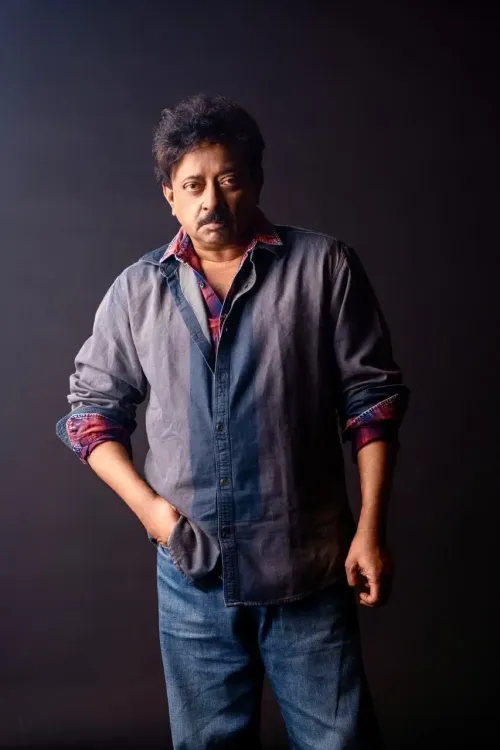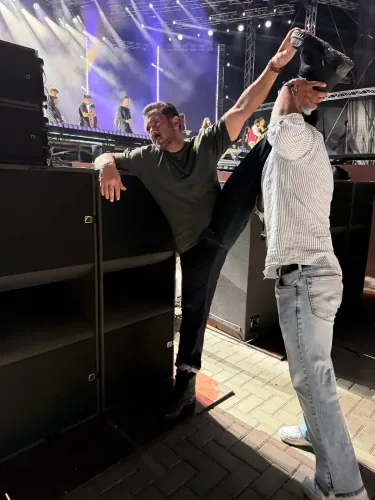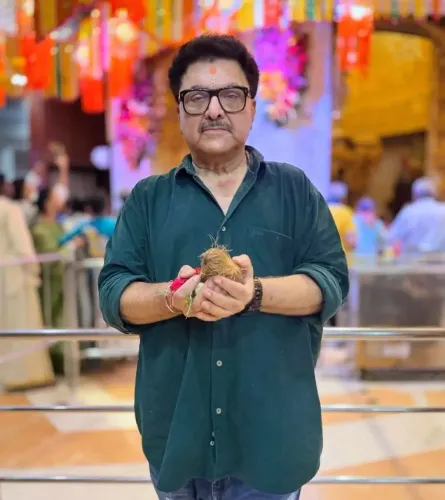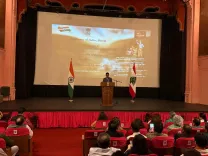Is Education Truly Dead, According to Director Ram Gopal Varma?

Synopsis
Key Takeaways
- AI is revolutionizing education.
- Traditional learning methods are becoming obsolete.
- Students must adapt to survive.
- Creativity and critical thinking are essential.
- Educational reform is urgently needed.
Hyderabad, Nov 13 (NationPress) Popular director Ram Gopal Varma has expressed that the Artificial Intelligence (AI) wave will not wait for educational institutions, officials, or outdated regulatory bodies to adapt. He warns that it will swiftly eliminate anything that fails to evolve, with students being the first casualties.
Taking to his X timeline to share his perspective on the rise of AI and its implications for education, Varma stated, "Education is dead. Hey students, wake up and CELEBRATE the DEATH of EDUCATION. The explosion of AI will correspond directly to a public recognition that our current education system is no longer viable."
To illustrate his point, he referenced the medical field: "Consider the medical curriculum. A student spends five years understanding human anatomy, an additional two years in post-graduate studies, and perhaps another two or three years specializing. That totals nearly a decade spent memorizing intricate details to finally diagnose health issues and recommend treatments."
"Now, if an AI can analyze countless medical cases, evaluate patient data, and provide accurate diagnoses and treatment recommendations swiftly and without bias, then what’s the point of investing ten years in what a machine can accomplish in ten seconds?" he challenged.
He quoted a prominent physician who lamented, "It saddens me to see current students entering medical schools because by the time they graduate, opportunities may no longer exist for them."
Varma emphasized that this reality isn’t merely dystopian but a reflection of today’s circumstances, affecting students across all disciplines.
"In an AI-driven world, clinging to our existing education system is not just outdated; it’s both naive and regressive. Our education is built on memory, designed for an era when information was limited. However, with instant access to information through devices, memorization is not knowledge; it’s sheer folly," he asserted, advocating for urgent educational reform as a necessity for future survival.
“The AI wave will not wait for universities or policymakers to adapt; it will erase what does not evolve, with students as the initial victims,” he warned.
"I firmly believe that radical changes in education are essential for future survival. If not, today’s students might become sacrificial lambs, betrayed by uninformed parents and policymakers, who are preparing them for jobs that may not exist," he explained, proposing a list of urgent reforms.
"We must immediately integrate AI tools into classrooms and examinations, not as a means of cheating, but as valuable assistants. Educational institutions should cease pretending to educate. Instead, they should evaluate how intelligently and creatively students can utilize AI. Future assessments shouldn’t focus on what students know; rather, they should gauge how quickly, deeply, and innovatively students can make AI work for them. The new genius will not be the one with all the answers, but the one who knows how to pose the right questions to AI," he highlighted.
Speaking directly to students, he advised, "You find yourselves in the midst of an AI apocalypse. Understand that the foundation beneath your textbooks is swiftly eroding. Your degrees may soon hold little value. Your instructors are teaching from the remnants of a defunct system. If you persist in learning the old way, you risk graduating into irrelevance. AI won’t extinguish you; it will simply overlook you. So, abandon the quest for grades and start learning to leverage AI. In the near future, those unable to harness AI will be rendered obsolete by it."









